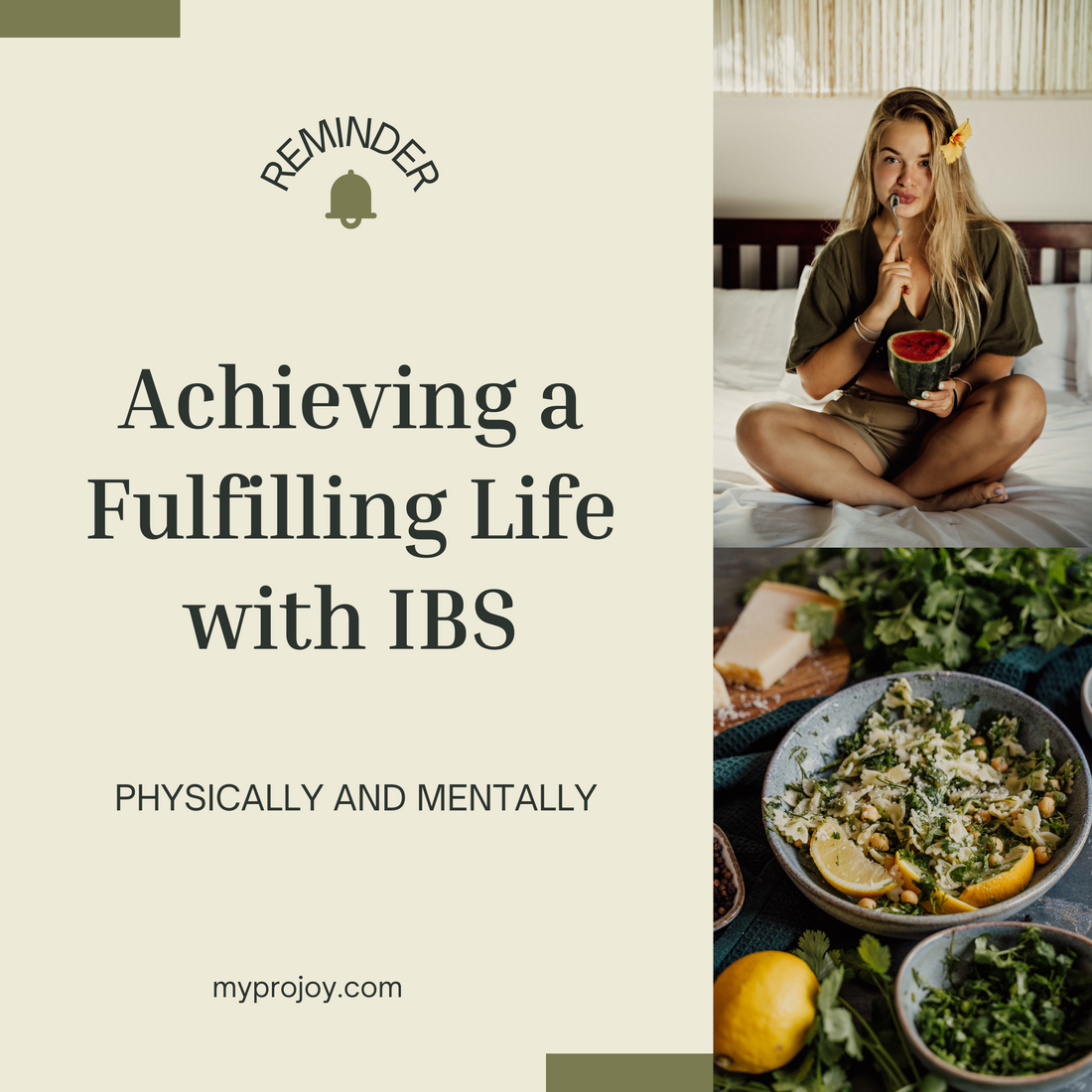
Coping with IBS: Strategies for Everyday Life
Share
Living with Irritable Bowel Syndrome (IBS) can be a daunting challenge, affecting multiple facets of your daily existence. In this comprehensive guide, we present practical coping strategies that empower you to navigate everyday life with enhanced ease and confidence. From making informed dietary choices to incorporating gut-friendly foods, and from mastering stress management techniques to fostering mindfulness practices, we're here to equip you with invaluable insights to effectively manage IBS and elevate your overall quality of life.
Understanding IBS: A Complex Condition
Before diving into coping strategies, it's crucial to comprehend the intricate nature of Irritable Bowel Syndrome. IBS is a gastrointestinal disorder characterized by chronic abdominal pain, bloating, and altered bowel habits. While its exact cause remains elusive, factors such as diet, stress, gut microbiome, and genetics may contribute to its development. Individuals with IBS often experience unpredictable symptom flare-ups, which underscores the importance of a holistic approach to symptom management.
Empowering Dietary Choices
A cornerstone of managing IBS is making conscious dietary decisions that align with your body's needs. Incorporating the right foods can significantly alleviate symptoms and enhance your overall well-being. Consider adopting these dietary strategies:
1. The Low FODMAP Diet
FODMAPs (Fermentable Oligosaccharides, Disaccharides, Monosaccharides, and Polyols) are a group of fermentable carbohydrates that can trigger IBS symptoms. Embracing a low FODMAP diet involves limiting foods rich in these compounds, such as certain fruits, vegetables, dairy products, and grains.
2. Gut-Friendly Foods
Opt for gut-nourishing options like probiotics and prebiotics. Probiotics introduce beneficial bacteria to your gut, promoting a healthy microbial balance. Consider integrating Projoy IBS Relief Probiotic with Prebiotics into your routine for optimal gut health.
3. Mindful Eating
Practicing mindful eating can aid digestion and reduce discomfort. Chew your food thoroughly, eat smaller, more frequent meals, and savor each bite. Mindful eating encourages relaxation and may alleviate stress-related IBS symptoms.
Effective Stress Management
Stress and IBS often share a bidirectional relationship – stress can exacerbate IBS symptoms, and experiencing symptoms can, in turn, cause stress. Implementing stress management techniques is pivotal in breaking this cycle:
1. Meditation and Deep Breathing
Engage in daily meditation and deep breathing exercises to promote relaxation. These practices help reduce stress hormones, potentially mitigating the impact of stress on your digestive system.
2. Yoga and Tai Chi
Physical activities like yoga and Tai Chi not only enhance flexibility and balance but also foster a sense of tranquility. Regular practice may aid in managing IBS symptoms by reducing stress and promoting overall well-being.
3. Cognitive Behavioral Therapy (CBT)
CBT is a therapeutic approach that focuses on changing negative thought patterns and behaviors. It can equip you with effective coping mechanisms to manage stress and anxiety, which can significantly benefit individuals with IBS.
Embracing Mindfulness
Cultivating mindfulness can serve as a powerful tool in managing IBS and enhancing your quality of life. Mindfulness involves being fully present in the moment, which can help alleviate stress and shift your focus away from discomfort. Consider these practices:
1. Guided Imagery
Engage in guided imagery sessions to transport your mind to peaceful and calming landscapes. Visualization exercises can promote relaxation and reduce stress, positively impacting your IBS symptoms.
2. Progressive Muscle Relaxation
Progressive muscle relaxation involves tensing and then releasing different muscle groups, promoting physical and mental relaxation. Regular practice can contribute to decreased muscle tension and overall stress.
3. Journaling
Keeping a journal can help you track your symptoms, identify potential triggers, and monitor your progress. Additionally, expressive writing can be therapeutic, allowing you to process emotions and reduce stress.
Achieving a Fulfilling Life with IBS
Living with IBS doesn't have to mean sacrificing your quality of life. By implementing these practical strategies, you can effectively manage symptoms, reduce discomfort, and regain control over your daily routine. Remember that IBS affects each individual differently, so it may take time to identify the strategies that work best for you. With dedication and perseverance, you can lead a fulfilling and comfortable life, even in the presence of IBS.
